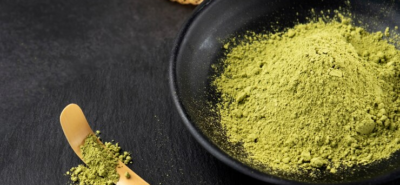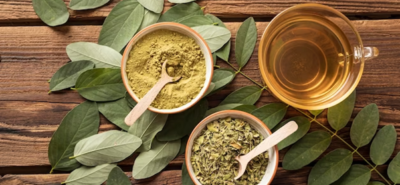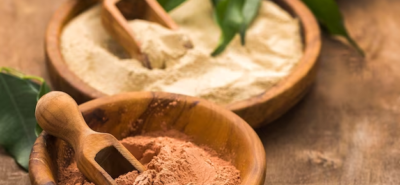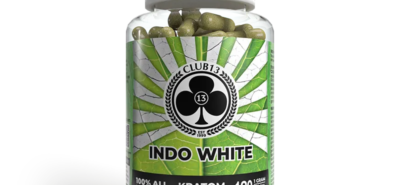Is Kratom Legal in North Dakota? (2024 Update)
In recent years, the popularity of kratom, a tropical tree native to Southeast Asia, has surged in the United States. Renowned for its potential health benefits, the compound has gained a dedicated following. However, the legal status of kratom varies from state to state, raising questions about its legality in North Dakota as of 2024. Before making any purchases, it’s essential to be well-informed about what North Dakota’s kratom regulations entail. Let’s explore all of them here.
Kratom Legality In North Dakota
As of the latest information available, Kratom is legal in North Dakota. Residents of the Peace Garden State are free to purchase, possess, and consume kratom without fear of legal repercussions. It’s crucial, however, for users to stay informed about any changes in legislation, as the legal status of kratom can evolve over time.
The regulation of Kratom law in the United States has been marked by considerable uncertainty. Initially, the Food and Drug Administration (FDA) expressed concerns about kratom usage, leading the Drug Enforcement Administration (DEA) to consider categorizing it as a Schedule I controlled substance in 2016. However, facing substantial public opposition, the DEA retracted its proposal.
In response to these regulatory challenges, the Kratom Consumer Protection Act (KCPA) was introduced. The primary goal of the KCPA is to establish standardized guidelines for the safety of kratom products, ensuring protection for consumers against products that may be adulterated or misbranded. This legislation has played a crucial role, particularly in states where the legality of kratom remains a contentious issue. Questions such as “Is kratom legal in North Dakota?” exemplify the broader uncertainty prevalent across the nation.
It is important to highlight that the World Health Organization (WHO) does not support a global ban on kratom for kratom users, citing insufficient evidence for such restrictive measures. While debates persist in different states, the legality and regulation of kratom throughout the country will continue to be a recurring topic. Ongoing discussions about kratom regulations in North Dakota, aimed at ensuring safe use, reflect the complex nature of national dialogues surrounding its use.
Read more: Is Kratom legal in Alabama?
The AKA and Kratom Advocacy in North Dakota
The American Kratom Association (AKA) has played a pivotal role in advocating for the legality and safe use of Kratom across the United States. This non-profit organization actively engages with lawmakers, government agencies, and the public to promote the benefits of kratom and fight against any potential bans.
In North Dakota, the AKA has been instrumental in educating legislators about the responsible use of kratom. Also, it checks for all the misconceptions surrounding whether to buy Kratom in North Dakota. Their efforts aim that individuals in North Dakota continue to purchase kratom online for its various purposes, including its potential to provide well-being.
Classification Of Kratom In North Dakota
Understanding the legal classification of kratom is crucial for users and potential buyers. As of now, kratom is not classified as a controlled substance in North Dakota. But, that doesn’t imply that Kratom is illegal in North Dakota. This simply means that it is not subject to the same legal restrictions as substances like opioids or certain prescription medications.
However, it’s essential to note that the legal status of kratom is subject to change. To stay updated, individuals can monitor official government websites for Kratom legality in North Dakota, follow the AKA’s advocacy efforts, and be aware of any legislative developments related to it.
Moreover, there are several advantages to implementing such regulation:
- Consumer Protection: This regulation would protect consumers from potential health risks, enhancing the overall reputation of kratom vendors.
- Trust and Credibility: By adhering to standardized practices, vendors can assure buyers of the integrity of their products. This fosters trust and credibility within the market.
- Genuine Product Guarantee: Regulation provides buyers with the assurance of purchasing genuine kratom products, promoting their safety and ensuring they receive the desired benefits.
- Clear Framework for Vendors: The Kratom Consumer Protection Act (KCPA) offers vendors a clear regulatory framework, eliminating ambiguities and facilitating the growth of a responsible and credible industry.
Read More: How to grow Kratom Plants?
Will North Dakota Ban Kratom?
While kratom is currently legal in North Dakota, the landscape of herbal supplement regulation is dynamic. There have been instances in other states where lawmakers proposed bills to ban or regulate kratom due to concerns about its potential risks. In North Dakota, as of 2024, there have been no significant moves to ban kratom.
It is important for kratom enthusiasts in the state to engage with the legislative process to use Kratom products, voice their opinions, and educate lawmakers about the responsible use of kratom. By actively participating in the democratic process, individuals can contribute to the continued legality of kratom in North Dakota.
Where to Buy Quality Kratom in North Dakota?
For those seeking quality kratom products in North Dakota, it’s crucial to choose reputable and reliable vendors. Due diligence is essential to ensure the purity and safety of the kratom being purchased. Online retailers and local stores may offer a variety of kratom strains, including powders, capsules, and extracts.
Before making a purchase, consumers should research vendors, read customer reviews, and verify that the products undergo third-party testing for quality and purity. The AKA website also provides a list of vendors who adhere to best practices and quality standards, offering a useful resource for individuals in North Dakota looking to buy high-quality kratom.
Here’s a comprehensive guide to assist you in making well-informed decisions:
- Third-Party Lab Testing: Prioritize vendors that subject their products to third-party lab testing, emphasizing not only legal compliance but also safety. This ensures the purity and absence of contaminants in the kratom.
- Ethical Sourcing & Sustainable Harvesting: The source of your kratom is crucial. Opt for suppliers dedicated to ethical sourcing and sustainable harvesting practices, guaranteeing both product quality and support for environmentally responsible methods.
- Vendor Reputation: In the era of digital communication, consumer feedback is invaluable. Conduct thorough research on vendors, delve into reviews, and participate in community discussions. A vendor’s reputation often serves as a reliable indicator of the quality and reliability of their offerings.
- Kratom Variety: The kratom market is diverse, and choosing vendors that offer a broad selection of strains, colors, and forms caters to various needs and preferences.
- Shopping Venue: While physical stores provide a tactile experience, online shopping offers a broader variety, more choices, detailed product descriptions, and the unparalleled convenience of doorstep delivery.
By adhering to these guidelines, you can enhance your overall kratom experience in North Dakota. As you delve into the world of kratom in the state, prioritize quality and authenticity to ensure both safety and satisfaction.
Final Thoughts
As of 2024, kratom remains legal in North Dakota, providing residents with the freedom to explore its potential benefits. The efforts of organizations like the AKA have played a crucial role to make Kratom legal in North Dakota and also educate lawmakers about its responsible use. However, the dynamic nature of herbal supplement regulation emphasizes the importance of staying informed about any changes in the legal landscape.
For those interested in purchasing kratom in North Dakota, choosing reputable vendors is paramount to ensure the safety and efficacy of the products. By staying engaged in advocacy efforts, being aware of legislative developments, and making informed choices as consumers, individuals can contribute to the continued availability.












Leave a Reply
You must be logged in to post a comment.